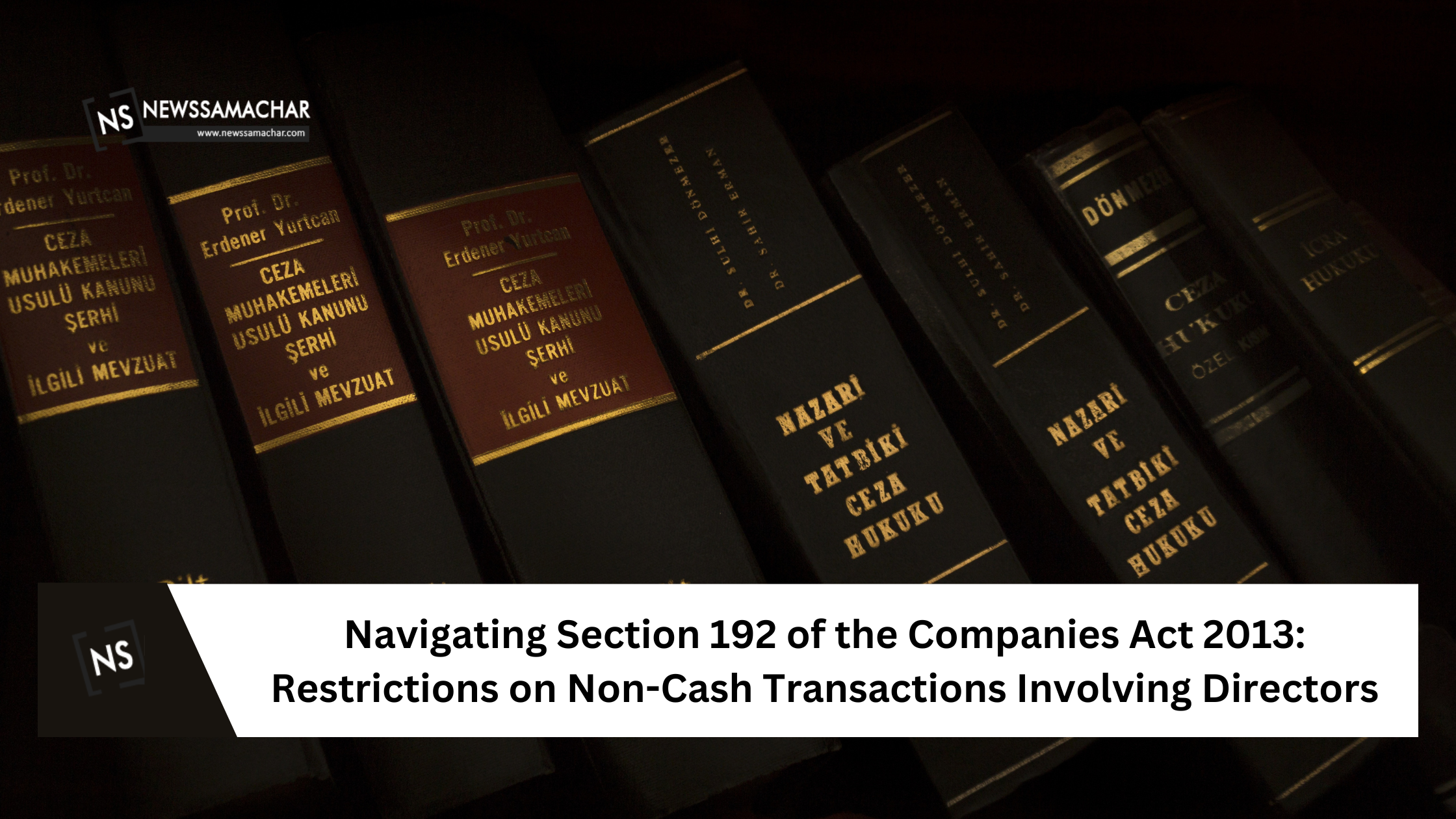
Section 192 of the Companies Act 2013 plays a crucial role in regulating transactions between a company and its directors, particularly those involving non-cash assets. This section seeks to ensure transparency and protect the interests of shareholders by mandating specific procedures for such transactions. Here’s an in-depth look into the provisions and implications of Section 192.
Understanding Section 192

Section 192 of the Companies Act 2013 addresses the regulation of arrangements involving the acquisition of assets by directors for consideration other than cash. This section mandates prior approval from the company’s shareholders, ensuring that any potential conflict of interest is addressed transparently.
Key Provisions
- Approval by Shareholders:
- Any arrangement between the company and its directors involving non-cash transactions must receive prior approval from the shareholders through a resolution passed in a general meeting.
- If the director involved is also a director of the holding company, a special resolution from the shareholders of the holding company is required.
- Notice of Meeting:
- Section 192(2) stipulates that the notice for the general meeting must include particulars of the arrangement, specifically the value of the assets involved. This valuation must be conducted by a registered valuer to ensure accuracy and fairness.
- Contravention and Reversal:
- According to Section 192(3), any arrangement made in contravention of the provisions is voidable at the company’s discretion. The company has the right to seek restitution for any loss or damage incurred due to the contravention.
- However, if it is not possible to return the money or other consideration, the company must be indemnified by the director or other involved parties.
Importance of Section 192
The primary objective of Section 192 is to safeguard the interests of the company and its shareholders. By requiring prior approval and proper valuation, this section ensures that transactions involving directors are conducted transparently and fairly. This helps in preventing any misuse of power by directors and upholds corporate governance standards.
Also Read:
1. Section 53 of the Insolvency and Bankruptcy
2. Section 50 of the CGST Act 2017
Protection Against Conflicts of Interest
Directors hold significant positions of power within a company, which can sometimes lead to conflicts of interest, especially in transactions involving non-cash assets. Section 192 addresses this by:
- Mandating shareholder approval, thereby involving the broader stakeholder base in decision-making.
- Ensuring proper valuation of assets to avoid any potential undervaluation or overvaluation that could harm the company’s financial health.
Ensuring Transparency and Accountability
Transparency and accountability are core principles of good corporate governance. Section 192 contributes to these principles by:
- Requiring detailed disclosures about the transactions in the meeting notices.
- Enabling shareholders to make informed decisions based on comprehensive information about the transactions.
Practical Implications for Companies and Directors
For companies and directors, adherence to Section 192 involves several practical steps:
- Preparation for General Meetings: Companies must prepare detailed notices for general meetings, including all relevant information about the proposed non-cash transactions.
- Engagement with Registered Valuers: Directors and companies must engage registered valuers to ensure accurate asset valuations.
- Legal and Compliance Checks: Companies should conduct thorough legal and compliance checks to ensure all transactions comply with Section 192 to avoid the risk of reversals and indemnifications.
Case Studies and Examples
To illustrate the application of Section 192, consider a scenario where a director of a manufacturing company proposes to acquire a piece of machinery from the company in exchange for shares. Under Section 192:
- The transaction must be approved by the company’s shareholders in a general meeting.
- The notice for the meeting must include the machinery’s valuation, conducted by a registered valuer.
- If the transaction is conducted without following these steps, it can be voided by the company, and the director may need to indemnify the company for any resulting losses.
Challenges and Considerations
While Section 192 provides a robust framework for regulating non-cash transactions, it also presents certain challenges:
- Administrative Burden: The requirement for detailed notices and valuations can be administratively burdensome for companies, especially smaller ones with limited resources.
- Potential Delays: Obtaining shareholder approval and conducting valuations can delay transactions, potentially impacting business operations.
- Legal Complexities: Navigating the legal requirements of Section 192 may require companies to seek legal advice, adding to the costs.
Also Read:
1. Section 144B
Conclusion
Section 192 of the Companies Act 2013 is a critical provision that ensures the transparency and fairness of non-cash transactions involving directors. By mandating prior shareholder approval and proper asset valuation, it protects the interests of the company and its shareholders, upholding the principles of good corporate governance. While compliance with Section 192 can be complex and time-consuming, the benefits of enhanced transparency and accountability make it an essential component of corporate law in India.







